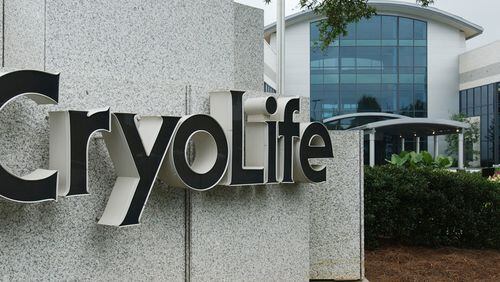About biological products
Human tissue for transplant is used in the treatment of more than one million people a year in the United States.
Implants include heart valves for children with congenital defects, bone to replace tissue destroyed through injuries or infection, veins for patients who might otherwise lose limbs, and ligaments and tendons to repair sports injuries.
The U.S. Food and Drug Administration regulates tissue recovery, screening and testing of deceased donors, processing, packaging, storage and distribution to try to prevent the spread of communicable diseases. It relies on manufacturers to assess product complaints. For credible reports of deaths or injuries, or acombination of complaints, companies are supposed to undertake specific and serious efforts to understand the cause.
All tissue carries some risk of disease. Tissue implants themselves would have to be destroyed to be cultured in a way to be certain they are free from harmful microbes. Instead, they may be swabbed on the outside for testing. However, companion tissue from the donor may be cultured since it won’t be used, and blood samples from the donor are tested.
Similarly, some methods used to sterilize metal or plastic medical devices could damage or destroy human tissue. Instead, the tissue is treated in other ways to minimize contamination from microorganisms.
Sources: Food and Drug Administration; Dr. Matt Arduino, chief of the CDC Clinical and Environmental Microbiology Branch; American Association of Tissue Banks
Shortly before Christmas in 2009, surgeons performed an emergency operation to save a patient suffering from an aortic aneurysm. But soon afterward, a deadly infection struck, and septic shock set in. When that happens, blood pressure can plummet and the heart, kidneys, lungs and liver may fail. Such was the fate of the patient, who died that Christmas Eve.
How was the patient infected? Hospital investigators pointed to two suspect devices, one of which was manufactured by Kennesaw-based CryoLife.
Now, federal officials have called into question the company’s follow-up investigation of the hospital’s report and four other reports of potential contamination of its products, including tissue implants made from human cadavers. CryoLife, which was forced to recall most of its implants in 2002, is working to resolve the concerns outlined in a Jan. 29 warning letter from the U.S. Food and Drug Administration (FDA) that was made public last month.
It’s the latest of several FDA recent actions involving companies in the burgeoning biological device industry, amid pressure on the agency to step up oversight. Late last year, the FDA posted a warning letter concerning human tissue implants from RTI Biologics, citing widespread contamination at its Florida plant, and the agency ordered Pacific Coast Tissue Bank to stop manufacture of human tissue products after determining it did not provide adequate protections against the risk of communicable disease.
In the Christmas Eve death, according to the FDA records, the hospital had flagged CryoLife’s best-selling product, BioGlue Surgical Adhesive. But the FDA said the company’s follow-up investigation failed to acknowledge that one of the BioGlue lots associated with the suspect product did not meet standards on “bioburden” testing, done to detect bacteria levels.
In another case, involving a patient who developed a fungal infection of the heart weeks after a valve implant in 2011, the FDA’s letter states that CryoLife erroneously reported that it had no reports showing problems or potential exposure of the tissue to contaminants during processing or packaging. Yet the company’s investigation had indicated that a thread-like fungus had later been found in plant equipment designed to remove contaminants from the air.
The detailed, five-page letter also notifies company officials that they had failed to properly address some objectionable conditions FDA officials found in an inspection last year. The conditions are potential violations of federal laws and point to concerns that the products may have been adulterated, said Jordan Paradise, who teaches food and drug law at Seton Hall University School of Law.
“It looks like the FDA is very concerned that there is no follow-through here, and the problems are persisting in a manner that is very concerning,” she said.
In a written statement to The Atlanta Journal-Constitution, the company noted the warning letter does not restrict production or shipment of the company’s medical devices or processed tissues or require withdrawal of any device or tissue from the market. “The warning letter did not express concerns associated with product integrity or patient safety,” the statement says.
CryoLife has detailed to the FDA the corrective actions it has proposed, the statement says. Because work with the FDA is ongoing, the statement says the company will not provide specific details of those actions, but it described them as “procedural in nature.”
William Hyman, a former chair of the biomedical engineering program at Texas A&M University, also notes that the warning letter does not say that CryoLife products were contaminated. That would be rare to determine from an inspection, he said. “Basically they’re saying your investigation was not adequate or we couldn’t tell if your investigation was adequate,” he said.
Concerns over tainted tissues prompted the 2002 recall of all CryoLife implants, other than heart valves. That order came after tissue from a cadaver processed by CryoLife was associated with the death of a patient who received a knee implant and the Centers for Disease Control was asked to investigate. Later, the FDA said that dozens of people had developed serious infections after receiving tissue implants processed by the company.
The scandal came at a time that there was little regulatory oversight of the recovery and processing of human tissue, and it led to new federal laws to protect patients.
CryoLife in recent years has regained its stature as a leader in the processing and distribution of human tissue, as it secured FDA approval for new products and diversified through acquisitions of other companies. It now distributes products worldwide, employs more than 450 people, and reported record revenues last year.
Like other biological device companies, CryoLife creates products from human corpses, as well as from some animals. The companies are to screen donor cadavers to see if they meet federal criteria; test tissue for specific communicable diseases; process and ship products in ways to prevent contamination or damage; and investigate reports of injuries or deaths associated with their products.
But with millions of biological implants now being done, and concerns from various watchdog groups about FDA oversight of high-risk products such as the implants, pressure has increased to step up efforts to prevent tainted products.
The FDA’s warning letter to CryoLife followed a routine, scheduled inspection of the plant over a four-week period in September and October. In such inspections, in addition to viewing company operations, FDA officials examine records, including complaints.
The warning letter cites a second case involving a patient death where concerns were noted about potential problems in the manufacture of BioGlue.
It also notes two cases where hospitals tested tissue products before they were implanted and identified potential contaminants.
In one case, the tests identified the mold Aspergillus, which can cause allergic reactions and infections in organs. The FDA found that CryoLife had not performed required monthly environmental monitoring in its dissection room. For the period prior to the dissection date, company records showed that fungus and bacteria had been detected in the room. But in its report on the possible root cause of the contamination, CryoLife did not take those findings into consideration.
In the other case, a pre-implant culture tested positive for the bacteria Staphylococcus. Environmental monitoring in the company’s dissection room and the packaging room showed the presence of Staph, as well as another bacteria, during the processing period for the implant. But, the FDA wrote, “The investigation does not address the fact that Staphylococcus was recovered in several sites during the processing period.”
Even when tissue is tested before it is implanted in a patient, lab results may not be available until after the operation is done. A fungus, for example, may not show up for 14 days after it is cultured, said Dr. Matt Arduino, chief of the CDC Clinical and Environmental Microbiology Branch.
The cited cases were among more than 130 reports to the FDA of injuries or deaths or device malfunctions associated with CryoLife products since 2009. That association may only regard timing and it does not mean that such “adverse events” were related to the product, Hyman said. But companies must undertake a timely investigation to try to understand a possible cause.
The FDA evaluates the reports, though spokeswoman Synim Rivers said the agency is rarely able to confirm that a specific medical device caused a death or injury.
Other concerns listed in the warning letter reflect conditions inspectors noted. They questioned internal controls used to monitor for contaminants and the effectiveness of efforts to keep some areas sterile. The letter also states the company’s employees lack the necessary training. An inspector witnessed an employee using poor procedures for sterility testing. In another case, an employee was not wearing proper head covering.
The FDA would not release other details because the case is still open, Rivers said in an emailed statement.
In its written statement, CryoLife said its products have a record of safety. “Our processed tissues have been used to save the lives and limbs of over 100,000 patients and BioGlue has been used safely and effectively in an estimated 800,000 procedures worldwide,” the statement says.
About the Author




/cloudfront-us-east-1.images.arcpublishing.com/ajc/P7DYBH6TO7FEKG4SUXQQKADRXE.jpg)


